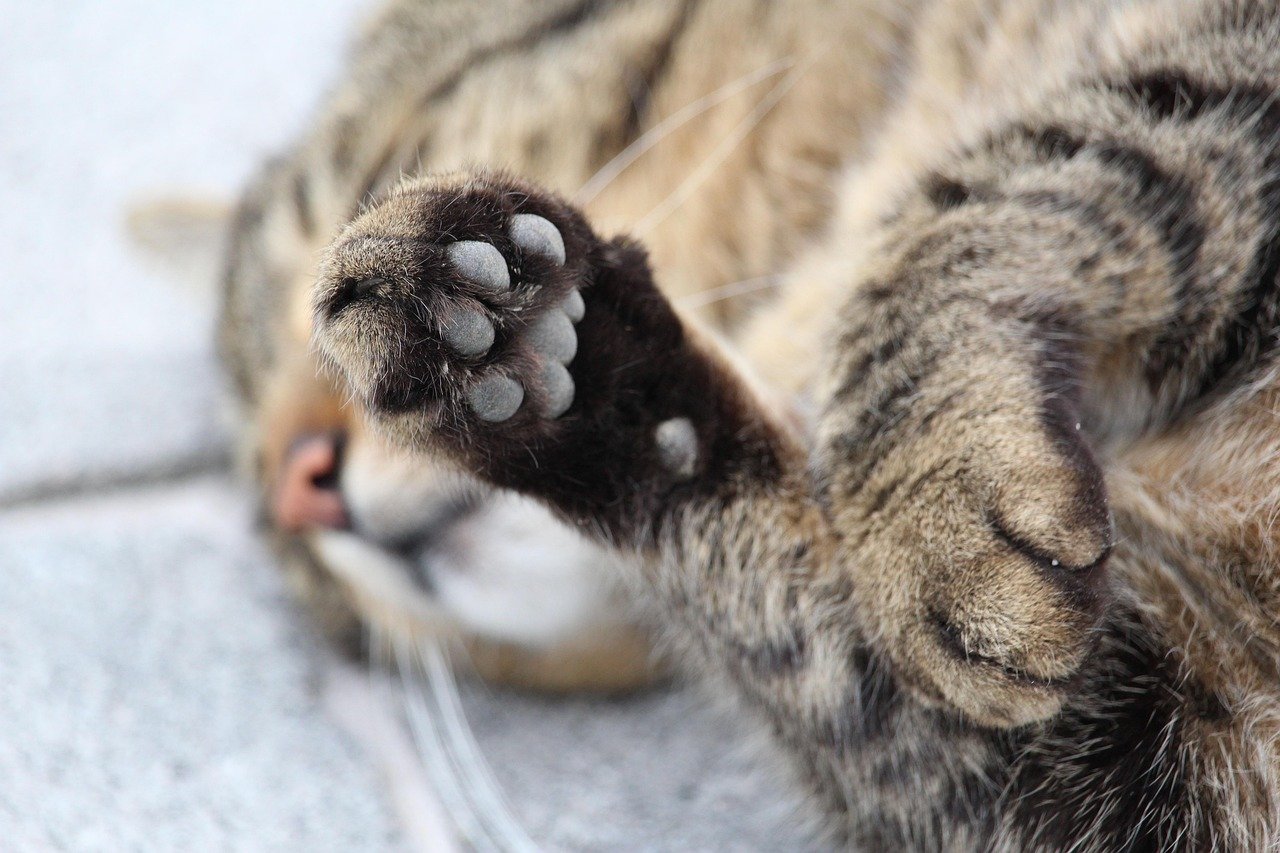DD Anaimal News. 10 July 2025: For decades, cat declawing has been performed in veterinary clinics across America with little public understanding of what the procedure actually entails. That’s all changing now, and Rhode Island has just become the latest state to take a stand against this controversial practice.
An Act Relating to Animals and Animal Husbandry — Cruelty to Animals (S.B.180AA/H.B.5668A) became law in Rhode Island, banning cat declawing except in rare circumstances when it is medically necessary to address a condition that compromises the cat’s health, such as cancer in the nail bed. The bill was passed by lawmakers on June 18 and became law without Gov. Dan McKee’s signature to be enforced wef Sept 1, 2025.
The Shocking Reality Behind Cat Declawing
What many pet owners don’t realize is that declawing isn’t just a simple nail trim. Cat declawing is an invasive surgical operation that is akin to amputating a human finger at the last knuckle. Onychectomy, or declawing, is not merely a permanent nail clipping. It is the amputation of the final bone in each of an animal’s toes.
The consequences can be devastating for cats. Declawing can cause lifelong issues for cats, including nerve damage, chronic back pain, and lameness. It can cause infection, paw pain, nerve damage, lameness and back pain, and has been shown to increase the risks for biting, aggression and house soiling among cats.
Think of it this way: if someone cut off the tips of your fingers to prevent you from picking up objects, you’d likely develop compensatory behaviors and chronic pain. Cats experience something similar, often becoming more aggressive or developing litter box issues as they struggle to adapt to their altered anatomy.
Legislative Champions Lead the Fight
Senator Melissa Murray (D-24) declared, “Declawing is painful, unnecessary and inhumane. It’s no way to treat any pet. Fortunately, there has been growing awareness of the risks and cruelty of declawing. Our state recognizes that unnecessary declawing is animal abuse.”
Representative William O’Brien added, “Mutilating a defenseless cat for any reason other than medical necessity is simply wrong and has no place in civilized society. This barbaric practice has been outlawed in many other states and countries, and it’s time for Rhode Island to do the right thing and protect our feline friends.”
“Too many cats are forced to endure an unnecessary surgical procedure in an attempt to protect a piece of furniture, when such a serious surgery should be reserved only for the infrequent instances where it is medically necessary for the animal’s health,” said ALDF Senior Legislative Affairs Manager Stephanie Harris.
The legislation had strong bipartisan support, with Senate President Senator Valarie Lawson and Speaker of the House Representative Joseph Shekarchi backing the measure. House Speaker K. Joseph Shekarchi noted, “Declawing a cat actually amputates a bone – it would be like cutting off part of a person’s finger. In addition to being incredibly painful for cats, declawing can cause long-lasting health and behavioral issues. It’s no way to treat a cherished pet, and I am very glad that Rhode Island has banned this cruel practice.”
Rhode Island will now join neighboring Massachusetts and other jurisdictions in protecting cats from unnecessary declawing.
Veterinarians Increasingly Oppose the Practice

The veterinary community has been shifting dramatically against declawing. In June 2024, the Animal Legal Defense Legislative Fund released poll results revealing 70 percent of veterinary professionals oppose cat declawing. Even more striking, half of the veterinarians interviewed reported that their practice does not perform any declawing procedures due to policy or no veterinarians willing to perform the procedure.
Wayne Kezirian of the Rhode Island Society for the Prevention of Cruelty to Animals noted that the declawing procedure is not commonly performed by most veterinarians in Rhode Island. The RISPCA “does not condone cat declawing for any reason other than when medically necessary to protect the cat’s health”.
This represents a generational shift in veterinary medicine, where newer practitioners are rejecting procedures that were once considered routine but are now understood to be harmful. 90 percent of veterinary professionals with less than 10 years of experience would support a statewide ban.
Enforcement and Penalties
The new law takes effect on Sept. 1 and will make it illegal for veterinarians to surgically remove a cat’s claws or “alter a cat’s toes, claws or paws to prevent or impair normal function”. Those who violate the new law could have their veterinary license suspended or revoked.
The legislation includes narrow medical exceptions, allowing the procedure only when it’s genuinely necessary for a cat’s health. The only exception to the law will be if the procedure is determined to be medically necessary to address any illness, infection, injury, disease or condition.
This approach ensures that legitimate medical concerns can still be addressed while preventing the vast majority of declawing procedures that are performed for owner convenience rather than animal welfare.
Rhode Island Joins Growing National Movement
Rhode Island becomes the fifth state to ban cat declawing, joining a rapidly expanding list of jurisdictions taking action. Before Rhode Island, Massachusetts passed similar legislation just last year and New York and Maryland have banned the procedure, as well as jurisdictions including Los Angeles, San Francisco, Pittsburgh, Madison, West Hollywood, Austin, Denver, Beverly Hills, Berkeley, and Washington, D.C.
Earlier this year Massachusetts joined New York, Virginia, Maryland and Washington, D.C., in banning the practice, and numerous cities around the country have local bans. According to People for the Ethical Treatment of Animals, declawing is banned in at least 38 countries, including almost all of western Europe.
The momentum is clearly building. In addition to Rhode Island, legislation has been filed in Arizona, California, Illinois, Massachusetts, Michigan, Minnesota, New Hampshire, New Jersey, and Pennsylvania in 2024. What started as a fringe animal welfare issue has become mainstream policy across the country.
A Victory for Animal Welfare
Rhode Island’s cat declawing ban represents more than just another animal welfare law – it’s a recognition that our understanding of animal welfare continues to evolve. As ALDF Senior Legislative Affairs Manager Stephanie Harris put it, “Too many cats are forced to endure an unnecessary surgical procedure in an attempt to protect a piece of furniture when that serious surgery should be reserved only for the infrequent instance where it is medically necessary for the animal’s health”.
The fact that this legislation passed with such strong support, including from veterinary professionals who actually perform these procedures, speaks to how dramatically public opinion has shifted. We’re moving from a world where convenience trumped animal welfare to one where we’re willing to find better solutions that don’t involve amputating parts of our pets’ bodies.
Rhode Island has taken a stand that countless cats will benefit from for years to come. When future generations look back at practices like declawing, they’ll likely wonder how we ever thought it was acceptable. Isn’t it remarkable how quickly society can change when we finally understand what we’re really doing?

Gargi from India has a Masters in History, and a Bachelor of Education. An animal lover, she is keen on crafting stories and creating content while pursuing a career in education.






